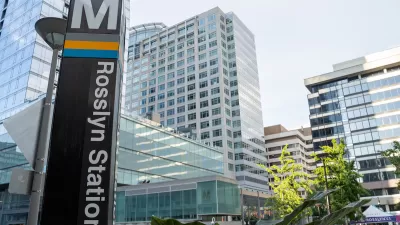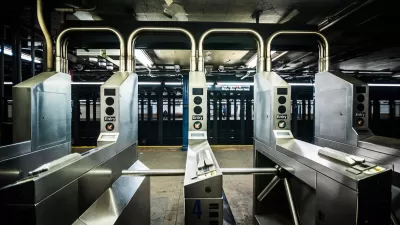Without additional funding, the region’s transit agency could be forced to reverse key changes that have improved service in the past year.

The major improvements experienced by Washington, D.C.-area transit riders could come to and end next year, according to a TransitCenter blog post. “This week, WMATA leaders released an outline of doomsday funding scenarios, which include severe service cuts that could eliminate bus routes, reduce rail hours, create longer waits between trains, and close down stations.”
The blog post outlines some of the most significant improvements in the last year, noting that “Metro will have 58 percent more trains in service on weekdays compared to July 2022 and provide 73 percent more train trips.” The agency also has several other improvements on deck, such as all-door boarding, which begins this fall.
“WMATA is an essential part of the DC region’s economy, and service cuts of this magnitude would be devastating for the mobility of the region,” the post continues. But “As of September, WMATA’s budget gap totals $750 million. If the agency isn’t able to close the gap by next summer, it will lose all of the progress that’s been made and will have to start initiating hiring freezes and layoffs that would dramatically reduce systemwide operating hours and cause increased wait times for passengers.”
FULL STORY: On the Brink: Will WMATA’s Progress Be Erased by 2024?

Maui's Vacation Rental Debate Turns Ugly
Verbal attacks, misinformation campaigns and fistfights plague a high-stakes debate to convert thousands of vacation rentals into long-term housing.

Planetizen Federal Action Tracker
A weekly monitor of how Trump’s orders and actions are impacting planners and planning in America.

In Urban Planning, AI Prompting Could be the New Design Thinking
Creativity has long been key to great urban design. What if we see AI as our new creative partner?

How Trump's HUD Budget Proposal Would Harm Homelessness Response
Experts say the change to the HUD budget would make it more difficult to identify people who are homeless and connect them with services, and to prevent homelessness.

The Vast Potential of the Right-of-Way
One writer argues that the space between two building faces is the most important element of the built environment.

Florida Seniors Face Rising Homelessness Risk
High housing costs are pushing more seniors, many of them on a fixed income, into homelessness.
Urban Design for Planners 1: Software Tools
This six-course series explores essential urban design concepts using open source software and equips planners with the tools they need to participate fully in the urban design process.
Planning for Universal Design
Learn the tools for implementing Universal Design in planning regulations.
Gallatin County Department of Planning & Community Development
Heyer Gruel & Associates PA
JM Goldson LLC
City of Camden Redevelopment Agency
City of Astoria
Transportation Research & Education Center (TREC) at Portland State University
Jefferson Parish Government
Camden Redevelopment Agency
City of Claremont





























